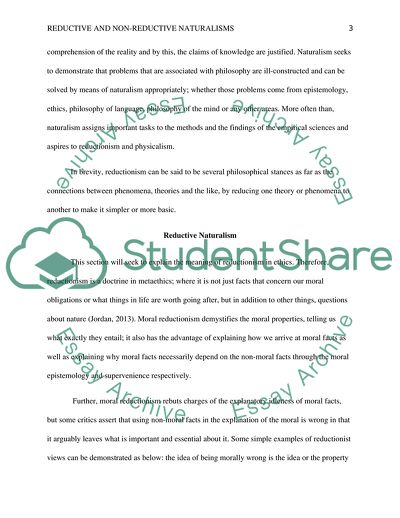Cite this document
(Reductive and Non-reductive Naturalisms Report Example | Topics and Well Written Essays - 1250 words, n.d.)
Reductive and Non-reductive Naturalisms Report Example | Topics and Well Written Essays - 1250 words. https://studentshare.org/philosophy/1873494-what-is-the-difference-between-reductive-naturalism-and-nonreductive-naturalism-strawson
Reductive and Non-reductive Naturalisms Report Example | Topics and Well Written Essays - 1250 words. https://studentshare.org/philosophy/1873494-what-is-the-difference-between-reductive-naturalism-and-nonreductive-naturalism-strawson
(Reductive and Non-Reductive Naturalisms Report Example | Topics and Well Written Essays - 1250 Words)
Reductive and Non-Reductive Naturalisms Report Example | Topics and Well Written Essays - 1250 Words. https://studentshare.org/philosophy/1873494-what-is-the-difference-between-reductive-naturalism-and-nonreductive-naturalism-strawson.
Reductive and Non-Reductive Naturalisms Report Example | Topics and Well Written Essays - 1250 Words. https://studentshare.org/philosophy/1873494-what-is-the-difference-between-reductive-naturalism-and-nonreductive-naturalism-strawson.
“Reductive and Non-Reductive Naturalisms Report Example | Topics and Well Written Essays - 1250 Words”. https://studentshare.org/philosophy/1873494-what-is-the-difference-between-reductive-naturalism-and-nonreductive-naturalism-strawson.


